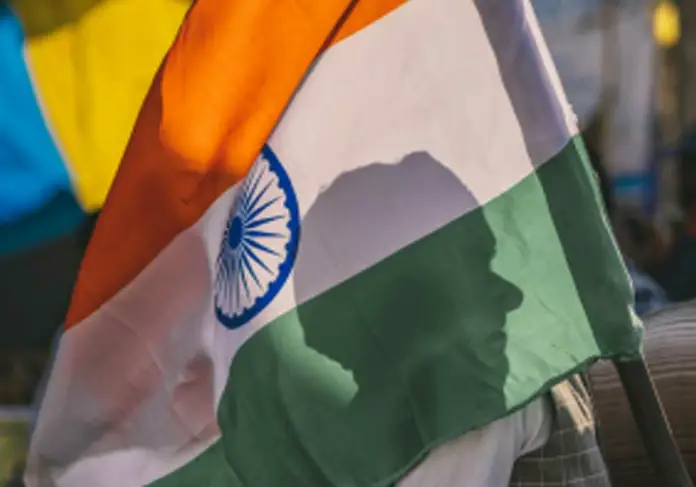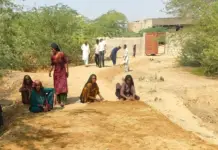On March 15, 2024, the Indian Election Commission released the timetable for the 18th Lok Sabha elections. The country’s political course for the next five years will be decided by the multiphase general elections in India, which are scheduled from April 19 to June 1. Since its republican foundation more than 75 years ago, India has had an almost uninterrupted electoral democracy with over 960 million eligible voters, including 470 million women. With over a million polling places and 15 million workers needed, voting is often high. With political parties spending over $7 billion on the 2019 parliamentary elections, India has the most costly elections globally. As a result of hundreds of millions of dollars being seized by Indian authorities for voter bribery, it is anticipated that expenditure will double during the current elections.
To win over voters, the Indian National Congress and the Bharatiya Janata Party have both stepped up their election campaigning. On the other hand, the opposition is facing challenges due to contentious actions implemented by the BJP-led government. Prominent members of both the ruling party and the opposition have intensified their public outreach. Another ‘Bharat Jodo Nyay Yatra’ was started in 2023 by Rahul Gandhi of INC, showcasing his initiatives that promote women, youth, farmers, and laborers. Though the ruling BJP utilized slogans like ‘abki bar 400 par’ and ‘main hoon Modi Parivaar’ to present Modi as a trustworthy figure and establish his Hindu identity, the opposition alliance concentrated on the BJP’s anti-secularist and anti-democratic policies.
Prime Minister Narendra Modi is running for a third term to address issues like clean water and infrastructure in India. However, his efforts to make India a Hindu nation and reform its secular democracy have exacerbated racial and religious tensions. The opposition has accused the Modi-led administration of “misusing” investigation agencies, referring to the growing number of politicians linked to corruption who have not been subject to any probes since joining the BJP. These accusations have been refuted by the government. The BJP, led by Modi, has a commanding majority in the 543-seat Parliament, with a multifaceted strategy that combines Hindu majoritarian ideology with social and infrastructure projects. The BJP has swept elections in the Hindi belt states of Chhattisgarh, Madhya Pradesh, and Rajasthan, and is still leading in the 2024 parliamentary elections. A survey conducted in late November found that 78% of Indians were satisfied with Modi’s work performance, with a net approval rating of +60. The Indian National Congress, the opposition party has found it difficult to equal Modi’s appeal and present a cogent ideological substitute.
As 2024 approaches, five key issues should be monitored: declining predictive power of state elections, difficulty in opposition coordination, struggle for backward castes, competitive welfarism arms race, and foreign policy as a mass issue. India’s elections are not preordained, and dispersed opposition led to splits in 2014 and 2019. The Indian National Developmental Inclusive Alliance faces three obstacles: reaching a consensus on a shared platform, lacking a leader, and disadvantaging the ruling coalition led by Modi.
The Indian opposition has not yet established a seat-sharing arrangement, causing member parties to voluntarily give up seats they feel they own. This makes it difficult for the opposition to fight as a coherent front. The opposition alliance’s coalition chemistry has not materialized, unlike in Uttar Pradesh in 2019. The challenge is whether different opposition groups can produce a cohesive and flexible political narrative, as time is not working in their favor.
The opposition, led by the BJP, faces greater challenges due to its persuasive narrative, broad agenda, and electoral strength. The National Democratic Alliance (NDA) is expected to win around 411 seats, while the BJP secures 300 seats. The BJP aims to win 370 seats, a symbolic number for the party. To increase its power, the BJP has formed coalitions with smaller parties, such as Jana Sena in Andhra Pradesh, the All India Anna Dravida Munnetra Kazhagam (AIADMK), the Tamil Manila Congress (TMC), and the Amma Makkal Munnettra Kazhagam (AMMK) in Tamil Nadu. However, the BJP is also accused of pursuing contentious policies, such as designated poll commissioners and detaining opposition figures. With nearly $1.9 billion donated to political parties, electoral bonds have primarily benefited the ruling Bharatiya Janata Party (BJP), raising concerns about money laundering and corruption.







